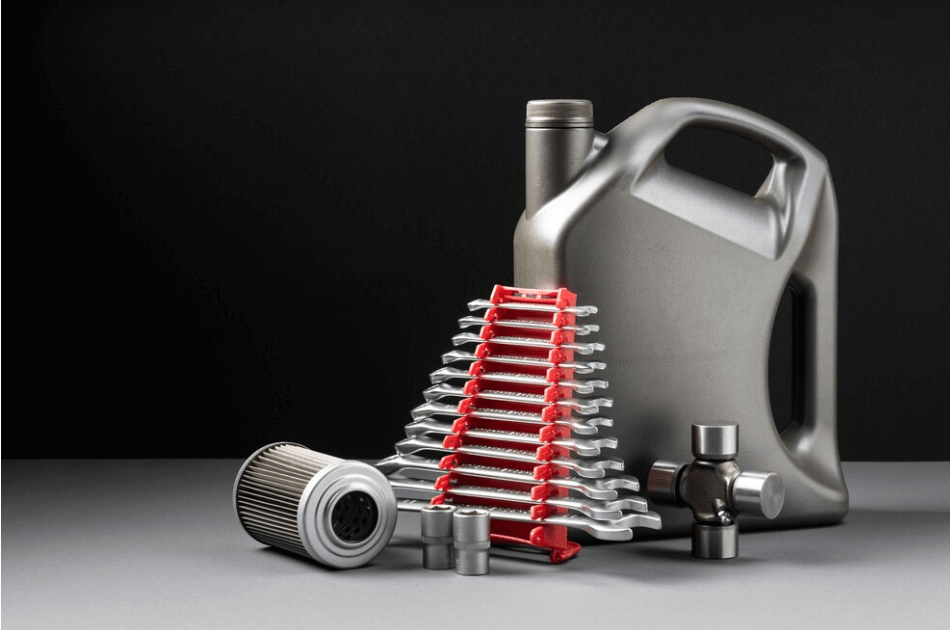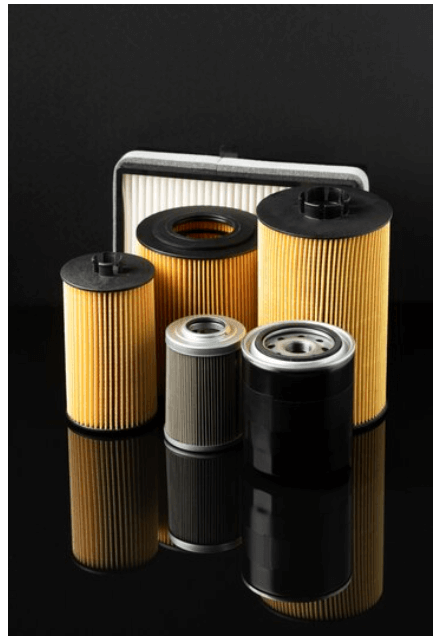Despite the advancements in automobile technology, car engine oil is still the lifeblood of cars. Different cars require different types of oil, and understanding the specific requirements for each vehicle can be quite challenging for you. How to determine which oil to put in my car is a question for potential car buyers, owners, and car users.
Engine oils are the key ingredient in the optimal performance of our cars, allowing them to last longer. The truth is, oiling the car’s engine at an appropriate time is one of the routine maintenance tasks for a car. Doing this must not be overlooked; rather, it should be done at regular intervals to ensure the long life span of your vehicle.
While you are at it, guys, it’s very important to know what kind of oil your car takes. There are so many ways to determine the best oil for your car. These ways will be discussed in this blog post and more.
In this guide, I’ll clarify the process of determining which oil to put in your car. You will discover the secrets to selecting the perfect oil for your car. You will also learn which oil filter is good for your car and many more. So, pay close attention to ensure you make informed decisions tailored to your vehicle’s needs.
Does this sound like something you would like to know more about? Let’s get right into the essentials of car oils and fluids to empower your journey toward optimal engine health and performance.

How to determine which oil to put in my car?
You can determine the oil to put in your car by checking the vehicle’s owner’s manual for manufacturer recommendations on the specific make and model. A 5W-30 engine oil is recommended for most cars, but factors such as climate, driving conditions, and the oil’s viscosity can also be considered.
Choosing the right oil to put in a car is a very crucial decision to make. There are many ways to go about it. They are as follows:
1. The vehicle’s owner’s manual
One of the ways to determine which oil is good for a car is to consult the vehicle’s owner’s manual to check for manufacturer recommendations before choosing any oil for your car. You will read about it under lubricant specifications. In that section, you will see the engine oil that is suitable and recommended for your model of car.
2. The oil cap
The next place to check the oil that is good for a vehicle is on the oil cap. It is there in every vehicle. The letter and number that represent each type of engine oil will be written on the oil cap. For instance, 0w 20 means a synthetic oil. Although there are some synthetic blends, but most of the time they are synthetic.
3. Under the hood
The other place you can look to ascertain good oil for a car is under the hood. The types of oil to use are written under the hood.

Factors To Consider When Choosing an Oil Provider
1. Consult Your Owner’s Manual
Start by checking your car’s owner’s manual for specific recommendations on the best type of oil. Manufacturers often specify the ideal oil for your vehicle. Some cars come with specific manufacturer recommendations for the type of oil they prefer. Following these guidelines ensures you’re using the right oil for your vehicle
2. Consider Viscosity Grade
Evaluate whether your car requires a 5W-20, 5W-30, or 10W-30 engine oil based on its viscosity needs. Viscosity is crucial for proper engine lubrication, especially at varying temperatures.
3. Performance Specifications Matter
Pay attention to the recommended performance specifications outlined in your owner’s manual. Different cars may have distinct requirements for optimal engine performance. The performance level indicates which make and model of the oil can be used and it is driven by the specification, which should be approved by the manufacturer of your car.
4. Synthetic vs. Conventional
Understand the difference between synthetic-blend motor oil, full synthetic oil, and conventional oil. Synthetic oils offer enhanced protection and performance, making them the go-to choice for some vehicles.

5. Climate and Driving Conditions
Consider your geographical location and typical driving conditions. 5W-20 engine oil, for instance, is suitable for cold starts, while 5W-30 or 10W-30 may be better for warmer climates.
6. Evaluate Your Driving Habits
Your driving habits impact the type of oil your car needs. If you frequently engage in stop-and-go traffic or towing, a synthetic blend or full synthetic oil might be a better fit.
7. Consider the Cost
While full synthetic oils are often considered the best, they come at a higher cost. Evaluate your budget and choose an oil that strikes a balance between quality and affordability.
8. Age of Your Vehicle:
Older cars might benefit from conventional oil, while newer models often perform better with synthetic blends or full synthetic oils.
9. Think Long-Term
Investing in the right oil now can contribute to the long-term health of your engine. Consider it an essential part of your vehicle’s overall maintenance.
What type of oil is best for my car?
Most commonly, vehicles take 5W-30, and the quantity typically falls between 4.7 and 7.5 liters of motor oil. Brands like Castrol engine oil are often recommended for their quality.
So if you’re asking, “What type of oil is best for my car?” Selecting the right oil for your vehicle is very important for optimal performance. A 5W-30 engine oil is recommended for most cars, but the best choice depends on various factors. Factors such as your car’s make and model, climate, and driving conditions. Synthetic-blend motor oil is a popular choice because it offers a blend of conventional and synthetic oils for enhanced performance.
Knowing the synthetic vs. conventional debate is key. Whether you opt for a 5W-30 or 10W-30 motor oil depends on the recommended viscosity grade and performance specification in your car’s manual. Conventional oil may be perfect for some cars, but synthetic oil could be better for others. It’s wise to choose the right oil based on your vehicle’s needs to ensure it runs efficiently. Whether it’s a full synthetic oil or a synthetic blend, determining the right oil type is essential for the durability and health of your auto.

Which engine oil is best for gasoline cars?
When it comes to ensuring the optimal performance of gasoline cars, choosing the right engine oil is paramount. Among the top contenders in the market, Castrol GTX stands out for its proven track record of providing exceptional lubrication and protection to engines.
Another excellent choice is Pennzoil Ultra Platinum Full Synthetic Motor Oil 5W-30. It is popular for its advanced synthetic formula that enhances engine cleanliness and reduces wear. Mobil Delvac MX Multigrade is another reliable option, excelling in meeting the demands of various driving conditions.
Whether you’re debating between mineral or synthetic engine oils, 5W-30 oil remains a popular choice for gasoline engines. This viscosity grade strikes a balance between providing sufficient flow during cold starts and maintaining stability at high temperatures. When it comes to choosing the best engine oil for your gasoline car, it’s crucial to consider your vehicle’s specific requirements and the manufacturer’s recommendations.
Engines deserve nothing but the best, and choosing the right engine oil contributes significantly to their durability and efficiency. Synthetic motor oils like Pennzoil Ultra Platinum offer excellent protection and also outperform traditional mineral oils in terms of durability. The choice of which engine oil is good for gasoline engines often revolves around the performance benefits of synthetic oils, making them a preferred choice for those seeking superior lubrication.
So, which engine oil is the best for gasoline cars? The answer lies in knowing your car’s needs, your driving habits, and the environmental conditions it faces. In many cases, synthetic oils like Pennzoil Ultra Platinum or trusted brands like Castrol GTX prove to be the better choice, offering enhanced protection, better fuel efficiency, and improved engine cleanliness. To keep your gasoline engine running at its best, invest in the best engine oil tailored to your vehicle’s unique requirements. Your car deserves the best, and the right engine oil ensures it performs at its peak.
You can also read: What happens if I use 10W40 instead of 10W30? A helpful guide.

What oil filter does my car take?
The first essential step to take in knowing the right oil filter for a car is to consult your car’s manual; it’s the ultimate guide. If you’re unsure, look for recommendations. You will get to know the quality of the oil filters that match various car models.
As I said, understanding the specific needs of your vehicle is key. Consider factors like the type of oil your car requires; synthetic fibers are gaining popularity for their efficiency. Some vendors offer an array of filters with a 100% textured grip for easy installation and removal. You can check them out.
You can also head to an auto store, armed with your vehicle details. They’ll guide you on which oil filter would be the perfect fit. Remember, regular oil filter changes are vital for engine durability. So, it is important to know and use the right oil filter for a car to avoid costly mistakes.

Recommended oil change frequency
The recommended oil change intervals, as per industry standards, depend on various factors. Manufacturers usually recommend specific oil change intervals in the owner’s manual, tailoring the frequency to your vehicle’s make and model. These recommendations are designed to optimize engine performance and efficiency.
The frequency of oil changes hinges on several considerations, such as climate, driving habits, and the type of oil used. Generally, conventional wisdom suggests changing the oil every 3,000 to 5,000 miles, but modern engine oils and advancements have extended recommended oil change intervals for many vehicles. Synthetic oils, for instance, often permit longer intervals between changes.
It’s crucial to pay attention to signs that may indicate the need for an oil change, such as dark and gritty oil on the dipstick or engine knocking sounds. While the recommended oil change intervals provide a guideline, adapting to your driving conditions can be key. If you frequently engage in stop-and-go traffic or drive in extreme weather, you might need more frequent oil changes.
Guys! the information above will guide you in making an informed decision when it comes to your car and the oil or oil filter you should go for.
Feel free to share your thoughts with me by putting your comments, suggestions, and questions in the comment section below. If there are any new oil filters in town, inform me in the comment section. Engage with my blog for every piece of information you need about your car.

With Over 7 years of experience dealing with car owners as a car lease agent, I have gained matchless car knowledge to help every car owner know what exactly is wrong with their cars.

